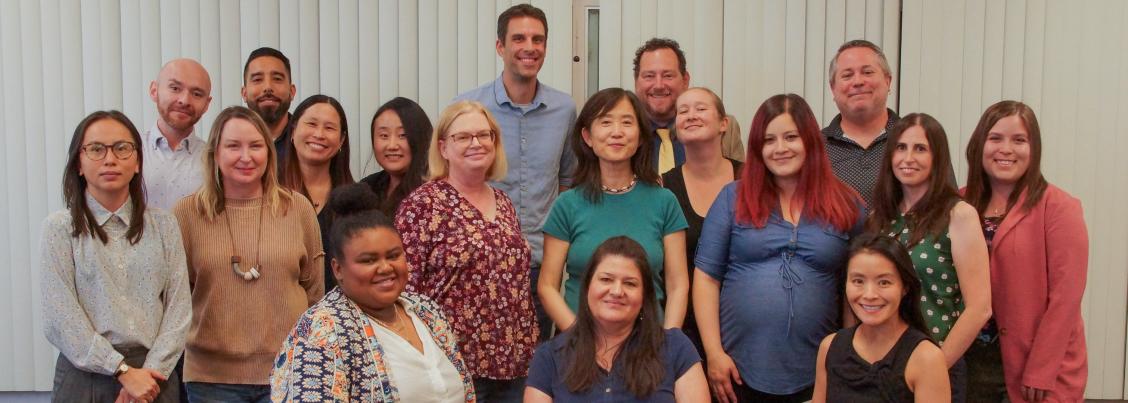Biography
Education
- Ph.D. University of Florida
- M.A. University of Kansas
- B.S. University of Florida
Specialty Areas: Applied Behavior Analysis
Courses Taught
PSY 351 – Behavior Psychology and Therapy
PSY 471AB – Advanced Inquiry in Clinical Psychology: Applied Behavior Analysis
PSY 555 – Assessment in Applied Behavior Analysis (graduate-level course)
PSY 611 – Developmental Psychopathology (graduate-level course)
Selected Publications and Presentations
Publications
Fahmie, T. A., & Hanley, G. P. (2008). Progressing toward data intimacy: A review of within-session data analysis. Journal of Applied Behavior Analysis, 41, 319-331.
Rooker, G. W., Iwata, B. A., Harper, J. M., Fahmie, T. A., & Camp, E. M. (2011). False-positive, tangible outcomes of functional analyses. Journal of Applied Behavior Analysis, 44, 737-745.
Fahmie, T. A. & Iwata, B. A. (2011). Topographical and functional properties of precursors to severe problem behavior. Journal of Applied Behavior Analysis, 44, 993-997.
Fahmie, T. A., Iwata, B. A., Harper, J. M., & Querim, A. C. (2013). Evaluation of the divided attention condition during functional analyses. Journal of Applied Behavior Analysis, 46, 71-78
Fahmie, T. A., Iwata, B. A., Querim, A. C., & Harper, J. M. (2013). Test-specific control conditions for functional analyses. Journal of Applied Behavior Analysis, 46, 61-70.
Presentations
Fahmie, T. A. & Iwata, B. A. Formal and functional characteristics of precursors to problem behavior. Association for Behavior Analysis conference, San Antonio, TX (2010, May).
Rooker, G. W., Iwata, B. A., Harper, J. M., Fahmie, T. A., & Camp, E. M. False-positive, tangible outcomes of functional analyses. Florida Association for Behavior Analysis conference, Orlando, FL (2010, October).
Fahmie, T. A., Iwata, B. A., Harper, J. M., & Querim, A. C. Evaluation of the divided attention condition during functional analyses. Florida Association for Behavior Analysis conference, Orlando, FL (2010, October). Also presented at the California Association for Behavior Analysis conference, Burlingame, CA (2011, February) and at the Association for Behavior Analysis conference, Denver, CO (2011, May).
Iwata, B. A., & Fahmie, T. A. The prevention of problem behavior. Berkshire Association for Behavior Analysis and Therapy conference, Amherst, MA (2011, October). Also presented at the São Paulo School of Advanced Science, Advances in Research and Treatment of Autistic Behavior conference, São Carlos, Brazil (2012, January).
Fahmie, T.A., Iwata, B.A., & Mead, S.C. Prevention of problem behavior maintained by tangible reinforcement. Invited talk at the University of Manitoba, Winnipeg, Canada (2013, April).
Fahmie, T. A., Iwata, B. A., & Jann, K. E. Comparison of sensory and edible reinforcers. California Association for Behavior Analysis conference, Garden Grove, CA (2013, February).
Shapiro, M., Rios, D., Kazemi, E., & Fahmie, T. A review of evidence based training strategies. California Association of Behavior Analysis conference, Garden Grove, CA. (2013, February).
Research and Interests
Functional analysis of problem behavior
This work focuses on identifying the determinants of severe problem behaviors (e.g., self-injury, aggression, property damage, disruption) that are common among individuals with intellectual and developmental disabilities. Research includes refinements and practical application of the experimental method (functional analysis) used to assess such behavior.Prevention of problem behavior
This work focuses on identifying preventive approaches that deter the development of severe problem behaviors among individuals with intellectual and developmental disabilities. Research includes translational and applied studies on the preventive efficacy of common treatments in behavior analysis.Skill acquisition
This work focuses on increasing desirable behaviors (e.g., communication, self-care, academic, social) in children and adults with intellectual and developmental disabilities. Research includes refinements in training strategies and extensions of established approaches to skills training.




